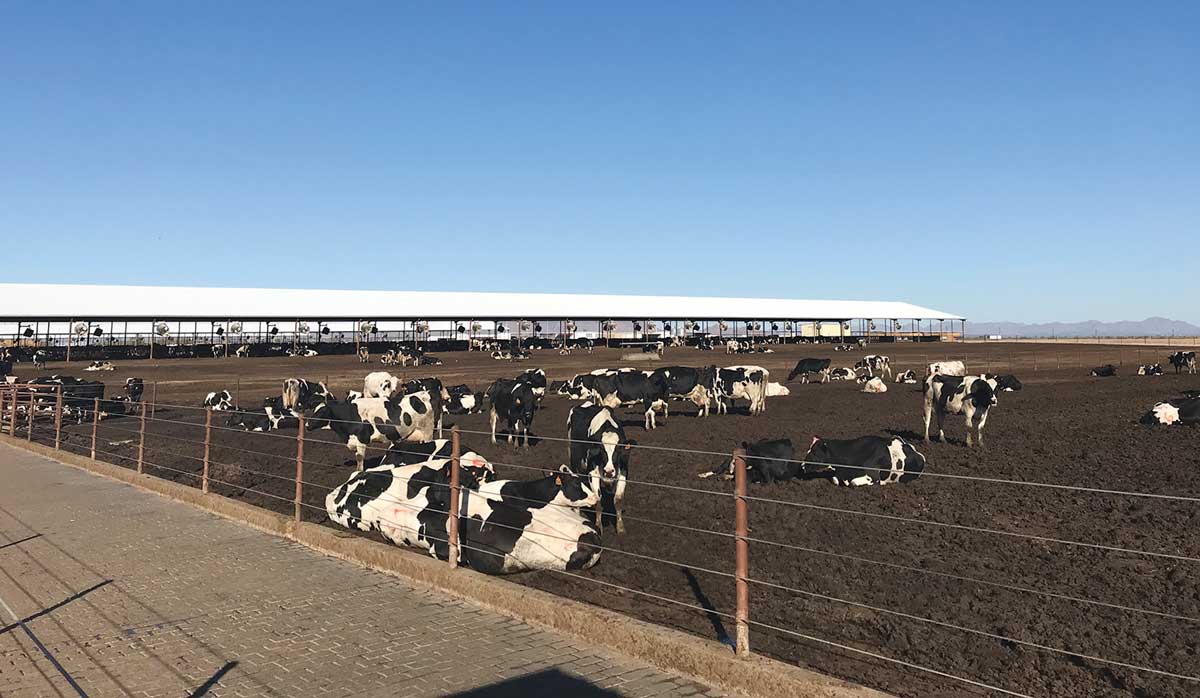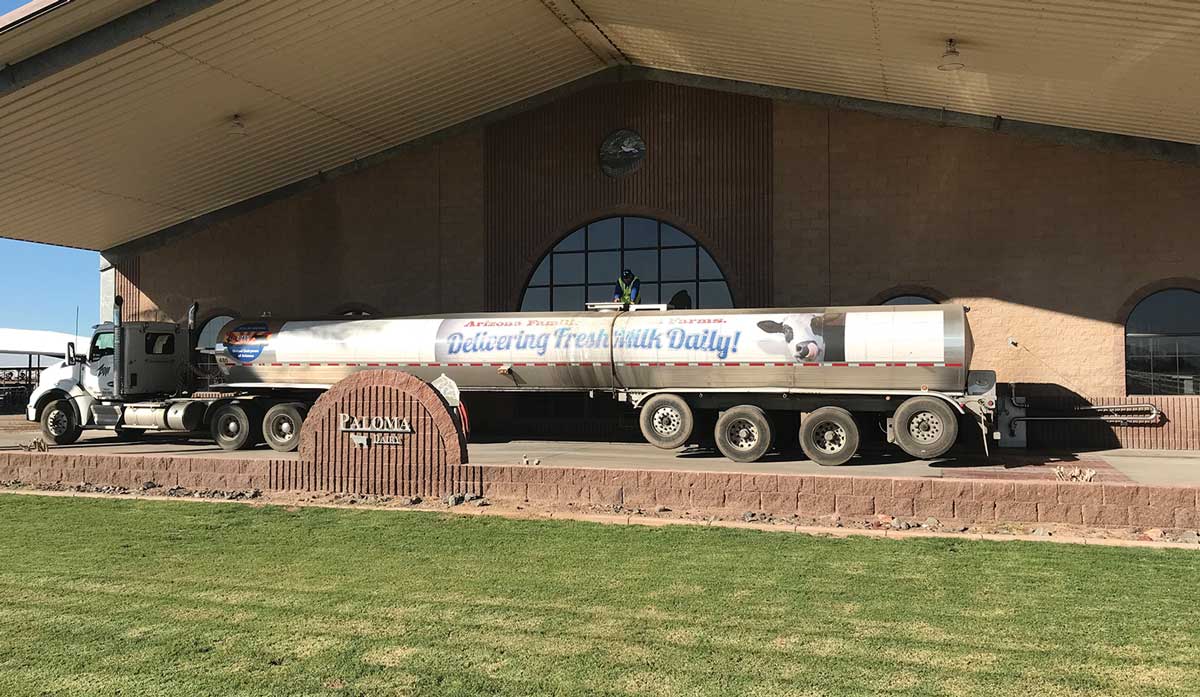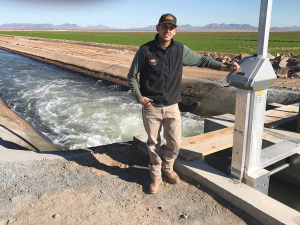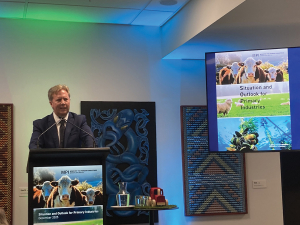Farmed by Robert T. van Hofwegen and his wife Andrea, alongside four sons and an extended family, the operation milks 8,000+ Holstein cows alongside another 7,000 followers on the 7,000-acre property.
They are fourth generation farmers and the business was founded in 2001. It currently employs 120 people on the dairy and another 20 people on the arable side of the business.
All cattle are housed in extensive open yards at the centre of the farm, calving at just over two years old, being sustained with farm-grown feed and a minimal number of bought-in supplements.
Total Mixed Ration (TMR) is delivered to the herd by oversized mixer wagons, loaded from multiple clamps located a the centre of the farm. The ration consists mainly of alfalfa and maize silage, complemented by barley grain, triticale, sorghum and cotton seed cake.
Feed is delivered to barriers at either side of a covered central feed passage that splits each of the large outdoor pens. Throughout the set-up, large cooling and misting fans help to reduce the effects of the high summer temperatures. The farm uses sexed semen for insemination, helping to reduce the number of bull calves being born, with Kyle van Hofwegen noting that they do have some problems getting some cows pregnant due to high daily temperatures.
A team of contracted vets work on site, overseeing animal health, while all milking animals are fitted with RFID collars/transponders for heat, general health and milk-yield monitoring, meaning workers can call up an individual animal’s history using hand-held computers.
Milking is a continuous operation carried out 24 hours per day, utilising three milking barns that house double 30-aside and double 35-aside setups. Typical average production is 35 litres per cow, per day.
Elsewhere on the vast central location, calves are reared in individual pens, being fed milk before they are moved into mobs of similar sized animals in rearing yards as they mature and head towards their first calving.
Transitional yards, walkways and the dairy barns are scraped regularly using a fleet of self-propelled units that “vacuum” up loose slurry, that in turn is delivered to an on-farm digester plant that feeds methane into a local gas delivery facility.
More solid manures from the holding pens and loafing areas is piled up regularly, drying quickly in the Arizona sunshine. It is then moved out onto the farm into composting heaps, before being incorporated as organic matter into the sand loam soils with underlying gravels.
 |
|---|
|
Cows are housed in extensive open yards at the centre of the farm. |
The growing operations extend to 7,000+ acres, which in this arid landscape are fed by one of many local irrigation schemes, typically seeing application rates of 6-7 inches of water being applied 6 to 8 times per season. Around 5% or 350 acres of the operation is under travelling irrigators, usually fed from underground aquifers, typically around 100 metres depth. The location means that water is a valuable resource, so the farm is currently investing large sums in water management: soil moisture measurement in real time, automation of sluices in the irrigation channels and targeted delivery systems.
Most of the cropping is centred around feed production for the dairy herd, with a small amount of cash cropping utilised to deliver an effective rotation. That rotation is alfalfa-maize, silagetriticale or barley-cotton and back to alfalfa.
The cropping includes 2,800 acres of alfalfa, that will last for three years, cut up to 10 times per season to deliver 10 tonnes per acre – utilised as chopped wet forage or made into large bales on a 50:50 basis. The 1,000 acres of maize for silage delivers around 28 tonnes per acre, 1,000 acres of barley delivers about 3.5 tonnes per acre and a further 1,000 acres of triticale provides 3 dry tonnes per acre.
On top of this, the farm grows 700 acres of sorghum and 300 acres of cotton, with the latter producing three 1,500 pound modules of fibre per acre that is sold, leaving a residue that is used in the TMR ration for the dairy herd.
 |
|---|
|
Milking is a continuous operation carried out 24 hours a day, utilising three milking barns. |
While it’s hard to grasp the size of the operation, alongside its location in such an alien landscape, there is no doubt that this family business uses attention to detail while embracing modern technology to run a very successful business. By contrast with NZ, there also seems to be no problem with attracting labour, although the family ensures that its many workers are well rewarded and work “sensible” hours, so they are able to spend time with their own families.
















